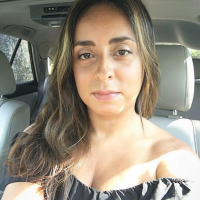“Race is there, and it is a constant. You’re tired of hearing about it? Imagine how f*cking exhausting it is living it.” ~ Jon Stewart
~
My best friend in kindergarten was a sweet boy named Jimmy.
We wrote stories together, played in his rec room, and walked home holding hands. When it was hot out, we were first in line at the ice cream truck to buy red, white, and blue Firecracker popsicles.
Our moms would always comment how cute we looked walking together: me with warm brown skin and dark curls, and Jimmy with pale skin and a dirty-blonde bowl cut. We could not have looked more different.
We were a Gap ad before it was cool.
I knew Jimmy was white. He knew I was not. Some days we mentioned it; most days we didn’t. What we never did—even at five years old—was deny it.
Sadly, most of us don’t retain the innocence that allows kids to be beautifully truthful. These days when the issue of race pops up in conversation, you can see people physically squirm with discomfort. Personally, I cringe every time an acquaintance, colleague, or perfect stranger proudly announces, “I’m not racist. I don’t see color.”
I know this phrase is meant to calm my fears. I’m meant to walk away confident that this person is not only compassionate, but progressive—and definitely not racist.
Misty Copeland, the first African American female principal dancer with the American Ballet Theatre, recently posted a quote to her Instagram account that captures exactly what I’d like to say to these well-meaning, but misguided, folks:
“Remaining colorblind only erases the experiences of others.”
It’s simple, poignant, and absolutely true.
Because when you don’t see my color, what you’re saying is you don’t see me.
You don’t see the pride I have in my rainbow-colored family—a beautiful mix of varying hues and physical characteristics.
You don’t see the long line of truly open-minded and accepting lovers who helped create me.
You don’t see the multitude of countries—Puerto Rico, Barbados, Jamaica, Spain, Scotland, Cuba, France, and Germany (to name a few)—that my ancestors traveled to and from to ensure my tribe would exist.
You don’t see the traditions, the love, and the strength that paint my skin.
You also don’t see the hoops I’ve had to jump through to prove to the world that my skin color doesn’t render me “less than.”
You don’t see the white mom who wouldn’t let me come over for a play date with her daughter because I was brown.
You don’t see the black girls in middle school who tried to bully me because my skin was lighter and my hair less coarse.
You don’t see the men who think that because of my skin tone and shape, my body is without boundaries.
You don’t see that until I applied for college, I had to check off “other” when applications asked for my race.
Please don’t tell me you don’t see color. I take no comfort in your thinly veiled attempt at political correctness.
When you claim to not see race, you proudly dismiss the experiences of those around you. You help perpetuate the racism that has run rampant for far too long.
And you slowly begin to chip away at what makes me—me.
But know that I see you. I see the shades of black, white, and brown in your skin. I see your blue eyes, your straw-colored hair. I see your full pink lips, your mess of curls. I see the shape of your nose and the curves in your face.
I notice the garments that represent your culture. I recognize that you speak a different language and your face will never mirror mine. I acknowledge your path and see the beauty in your struggle and your strength.
I know that in your mind, you mean no harm with your statement. You’re trying to diffuse or avoid or say the “right thing” about what can be an explosive topic. You believe this statement is an attempt to unlearn the discrimination that is so ingrained in our world.
But the first step is admitting that you see me. Notice that our cultures and experiences are different, but recognize that because of these differences, you see the value in my existence. Admit that seeing what separates us might be the one thing that unites us.
Talking about race can be uncomfortable, but not talking about it is destructive. Because pretending we are all the same doesn’t change the fact that we are not.
“Beloved community is formed not by the eradication of difference, but by its affirmation, by each of us claiming the identities and cultural legacies that shape who we are and how we live in the world.” ~ bell hooks


 Share on bsky
Share on bsky





Read 3 comments and reply